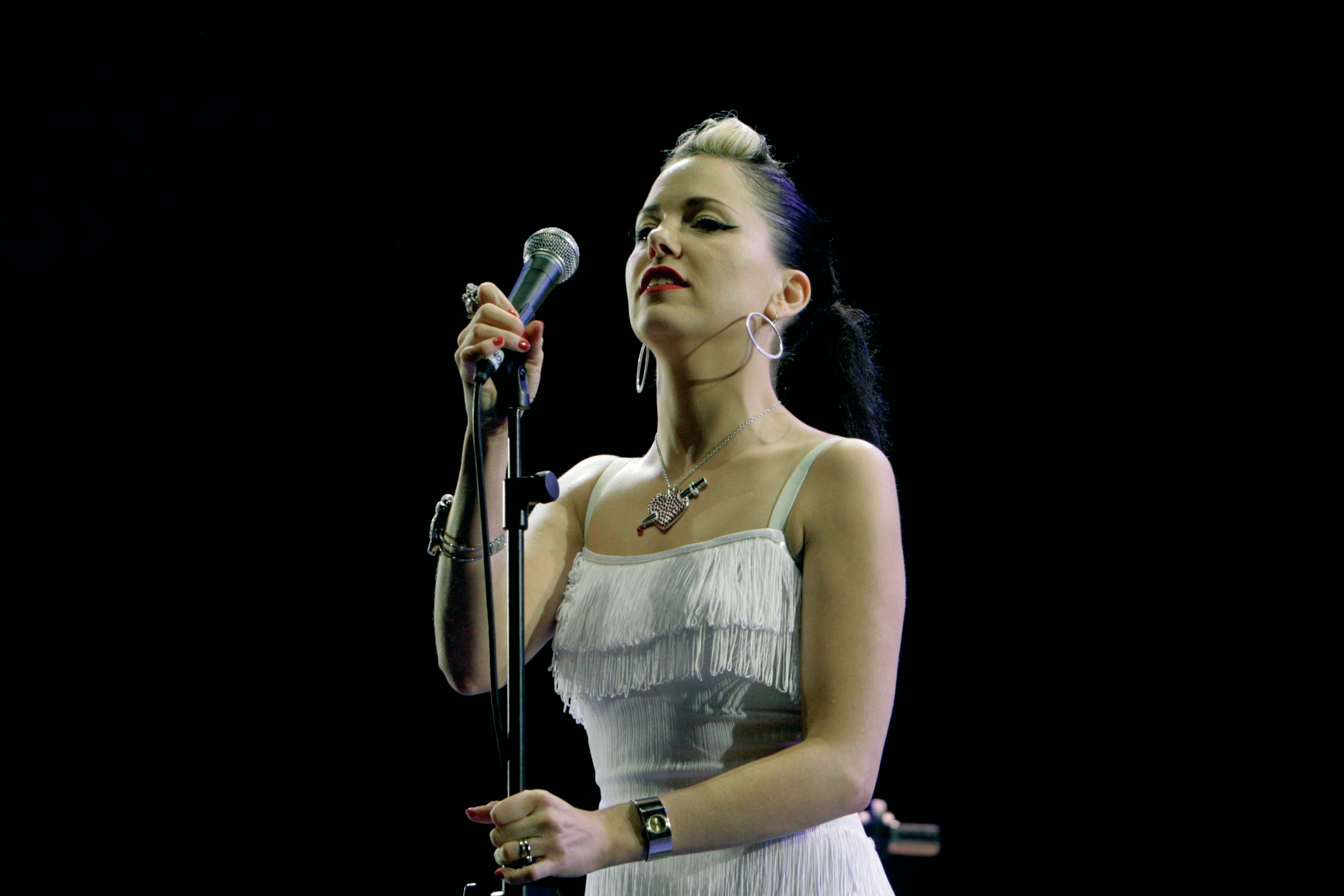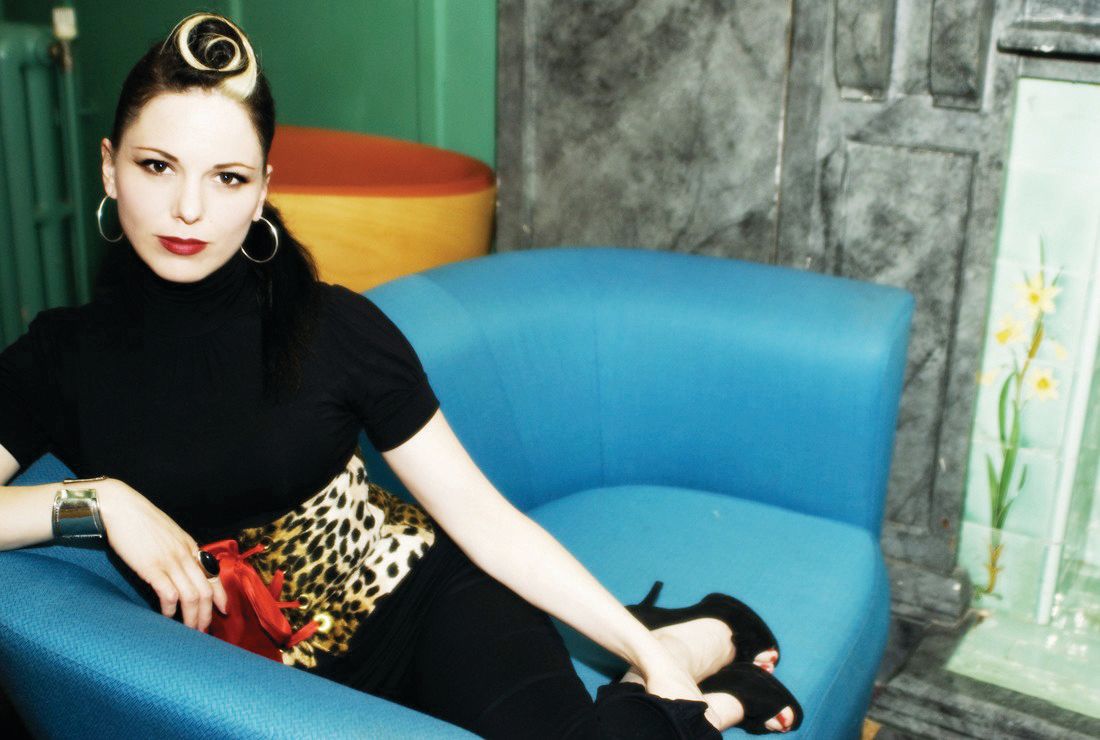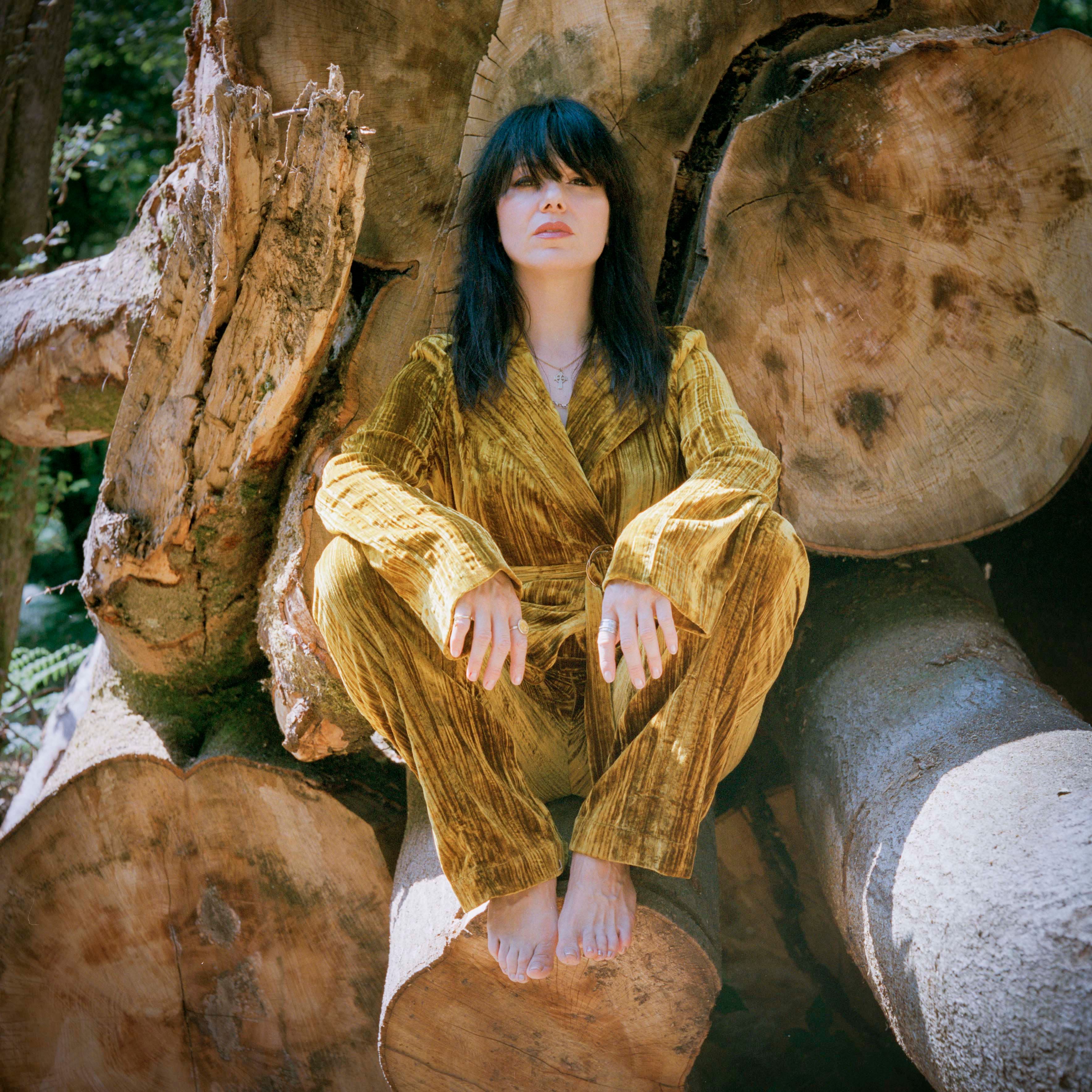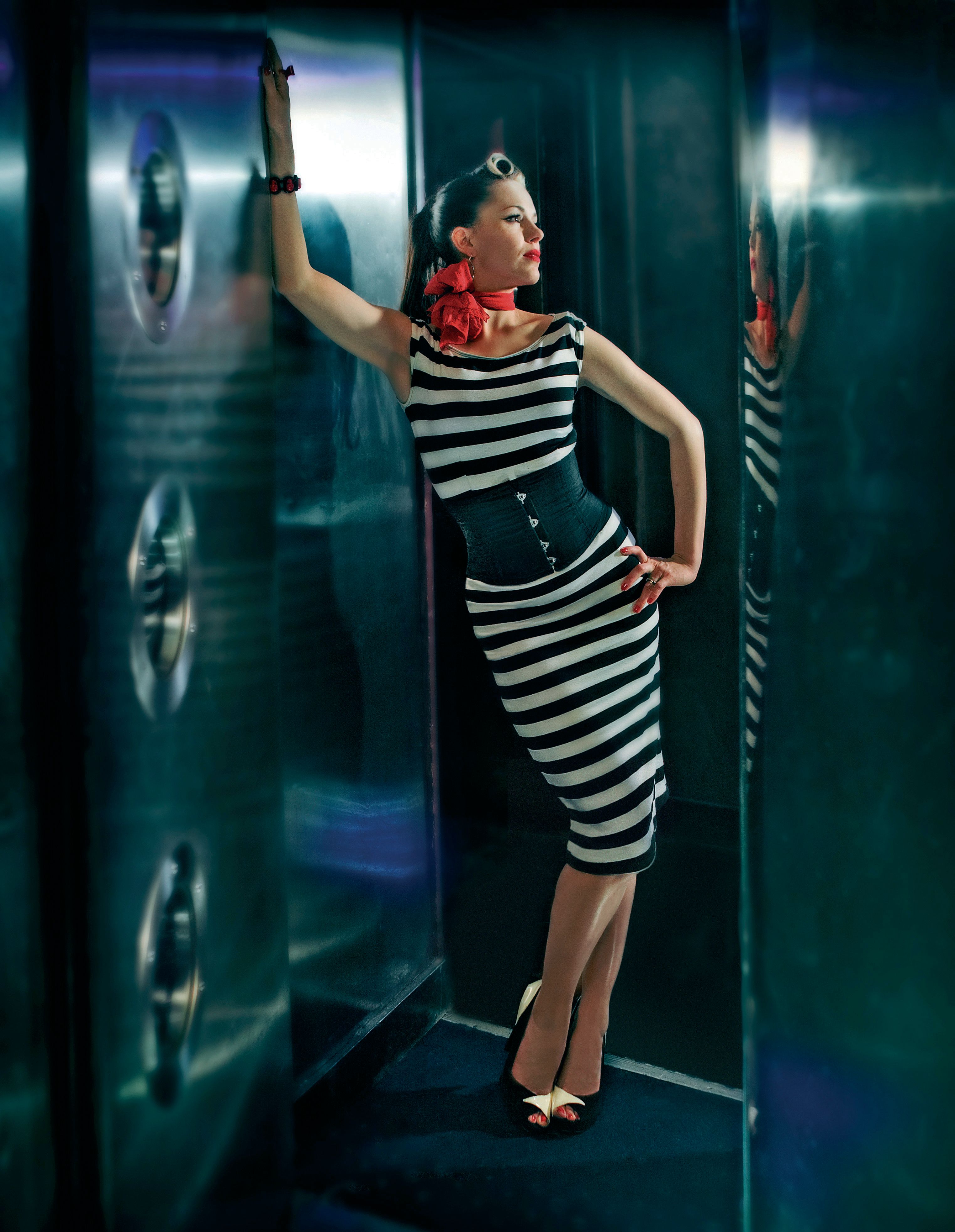Johnny Got a Boom Boom
By Imelda May

Imelda May already had a modest cult following when she appeared on the British TV show Later… With Jools Holland and performed the self-penned foot stomper ‘Johnny Got a Boom Boom’, with Holland on the piano. It was a career-defining moment for the smokey-voiced singer, who began to draw comparisons with Billie Holiday. The now classic rock ‘n’ roll tune soared up the charts and brought the fringe rockabilly scene – of which May was then a part – into the mainstream consciousness for the first time since Tiger Army in the 90s. Riffs and quiffs were officially back, with May’s Love Tattoo album reaching No.17 on the Amazon download chart and No.30 on iTunes. She went on to scoop Best Newcomer at the Irish Music Awards and Best Irish Female at the 2009 Meteor Awards, while the song was featured in the 2010 black comedy Wild Target, starring Emily Blunt. May has gone on to have four No.1 albums in Ireland and counts Ronnie Wood, Noel Gallagher and Bono (as well as the late David Bowie) among her fans.
The Story Behind The Song
The youngest of five siblings, Dubliner Imelda May (born Imelda Clabby) grew up in a busily creative household in the Liberties, close to the Coombe area that was immortalised in the famous Dublin song ‘Biddy Mulligan (The Pride of the Coombe)’. Her father was a dancer and photographer; her mother a dressmaker, who started a music and drama school in the neighbourhood.
“Sometimes it felt like I was surrounded by colour in a world of black and white,” she told the Times. “They helped me see the beauty in the mundane. They showed me the magic in ordinary things. So, I can only thank them for that, forever.”

She may indeed! The stylised rockabilly look sported by Imelda when 'Johnny Got A Boom Boom' was released.
She may indeed! The stylised rockabilly look sported by Imelda when 'Johnny Got A Boom Boom' was released.
A talented and driven teenager, May crafted a retro 1950s image, singing from a young age and forming her own band in 2002. She moved to London with her then-husband, guitarist Darrel Higham, on the back of her debut album No Turning Back – originally released in 2003 as an Imelda Clabby record. From her London base, she “worked her ass off” pulling double shifts as a waitress and a carer, then gigging in the evenings and at weekends. The album was remixed and repackaged as an Imelda May album, on Foot Tapping Records, in 2007.
She was still toiling in relative obscurity when she released her second album Love Tattoo, on Ambassador Records, a Universal Music label. The opening track, ‘Johnny Got A Boom Boom’ caught the ear of British TV host Jools Holland – a former member of hit-makers Squeeze and leader of Jools Holland and his Rhythm & Blues Orchestra. The song had been written years earlier by May when she was singing in another band and “itching to do her own stuff.” Inspired by the double bass (the Boom Boom) during soundcheck, she wrote the lyrics – in part an ode to US blues legend John Lee Hooker whose seduction song ‘Boom Boom’ is a much-covered blues classic – on the rehearsal room floor. Now captured in three glorious minutes of roots rock brilliance, it impressed Jools enough for him to invite her onto his BBC TV show, Later… With Jools Holland – putting her on a fast-track to success. Prestige tours with Holland himself, and with Van Morrison, followed, along with spots at a slew of festivals – including the early high of a Glastonbury Festival appearance.
May’s breakthrough blend of rockabilly-meets-jazz, by way of 1950s film noir heroine and burlesque showgirl, provided the perfect contrast to the manufactured pop acts of the late noughties. It also made record companies reluctant to sign her – that is, until ‘Johnny Got a Boom Boom’ inspired a major deal with Universal Music. The song, with its swooning, wild woman sexual energy – released as lead single from Love Tattoo – was a smash with fans and critics alike in Ireland and the UK. May’s popularity soared further when the promo video for the single – since viewed more than 5 million times – was released. Filmed in a small venue in Dublin, the video opened and closed with May doing her make-up in the mirror and further fuelled a fascination with her vibrant and playful take on rockabilly style. Her Irish roots were reinforced powerfully with May playing bodhrán in the video, to add to the song's innate ‘boom boom’.
Celebrity endorsements followed, from Bono and Bob Dylan to Lou Reed, Jeff Beck and the late Paddy Moloney, of The Chieftains. In 2010, David Bowie was in the audience for one of her shows in New York. “That could have been a train wreck,” she recalls. “I’m trying to focus and David Bowie is looking back at me.”
Not that she rested on her rock legend-endorsed laurels – at every stage, she grafted for her success. In fact, May was first ‘discovered’ by Ronnie Wood of The Rolling Stones, aged just 16, at a Dublin gig. The pair remain firm friends, with Ronnie appearing on her most recent album, alongside Noel Gallagher and Charlotte Hatherley, formerly of Northern Irish chart-toppers Ash. When she supported Jools Holland on tour, Imelda hand-produced the flyers that she placed on every seat in his 2,000-capacity venues, advertising her own show in the same town a month later.
Imelda has since ditched the heavily stylised image that made her famous, going on to become one of the best known and most respected women in Ireland, with Bono going as far as to dub her the ‘queen of Ireland’. She has hosted her own TV show, The Imelda May Show, showcasing the best of Irish and international talent, and performed the Irish national anthem at the 2017 Mayweather Jr. vs. Conor McGregor fight in Vegas.

Imelda May 2020: finding her pagan roots. Photo by Eddie Otchere
Imelda May 2020: finding her pagan roots. Photo by Eddie Otchere
May’s sixth studio album, 11 Past The Hour, was her fourth No.1 in Ireland. As well as confirming her as the biggest-selling Irish female artist since 2000, it saw her match Madonna, Beyoncé and Ariana Grande, as joint-second on the list of female artists with the most chart-topping albums in Ireland this millennium. She released her first book of poetry, A Lick and a Promise, in 2021 to widespread acclaim. Imelda was part of the Irish Women in Harmony collective that recorded a version of The Cranberries’ ‘Dreams’ in aid of the charity SafeIreland, which aims to end domestic violence. She recently presented the two-part TV series Voices of Ireland, funded by Tourism Ireland, and shown on Sky Arts.
‘Johnny Got A Boom Boom’ featured in the movies Morning Glory (2010), produced by J.J. Abrams, and Wild Target (2010), starring Bill Nighy, Emily Blunt and Rupert Grint; in the popular US TV series 90210 – appropriately in the ‘Into The Wild’ episode; and in the French-language Guerlain perfume ad ‘L’Homme Ideal’. It remains a highlight of her stage shows, and a fine early expression of the pagan energy that has become an Imelda May trademark.

